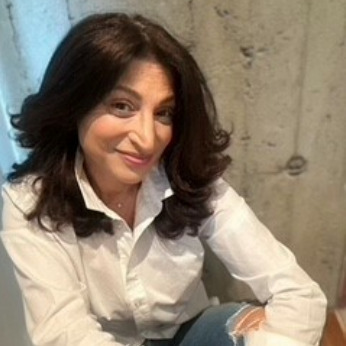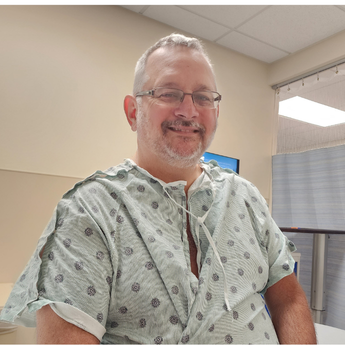 By Mirella Fucile
By Mirella Fucile
I grew up as the daughter of a mother who battled lymphoma for 10 grueling years, only to be taken away by leukemia in the end. As a teenager, I accompanied her through this harrowing journey, unaware that I was accumulating PTSD along the way. Health and wellness became my fixation, a supposed guarantee against cancer. But this obsession was rooted in fear – fear so profound that I avoided having children, terrified of subjecting them to the horrors I witnessed with my mother's treatments.
My mother was diagnosed at age 42, and despite my fears I finally gave birth to my son when I was 43, believing I had surpassed the age of risk. One week after my first mammogram in June 2021, when I was 52 – the same age as my mother when she left us – I felt a small seed-like lump on my chest. I was diagnosed with breast cancer: the very thing I dreaded most had found me. Because of how high the lump was on my chest the mammogram would have never captured it. It was with an ultrasound that they found the suspicious mass. I was later diagnosed with stage II HR+ breast cancer.
But instead of succumbing to fear, I embraced it, adopting a mode of protection. Under no circumstances did I want my 9-year-old son to know I had cancer. To him, my surgery was a bad fall, chemotherapy was a special vitamin, and radiation was physiotherapy. Side effects were difficult as I am highly intolerant to all meds. Despite the agony, I maintained a façade of normalcy, sticking to our routines, keeping our household free of talk about illness.
My fight for my son’s well-being outweighed my own. My fear transformed into an unyielding determination to shield him from the chaos. I chose to have him, I didn't choose to have cancer, but I could choose how it would affect my family. Today though, two years later, my son is thriving—an A student with dreams of becoming a judo Olympian. Through his success, I find my own. Embracing cancer had dispelled my fear.
After one year of remission, I started volunteering at Hope & Cope, utilizing my skills in health and wellness to support patients through cancer treatment and beyond. Utilizing my background as a fitness guru, caregiver for both my parents and my own battle with cancer, I empathetically convey my challenges with pain, fatigue, and mental exhaustion to patients. My aim is to reassure them that I understand their struggles and to offer hope that things do improve.
Frequently, friends, family and patients ask me why I dedicate my time to volunteering, and I struggled to articulate an answer until I read The Meaning of Charitable Work by Father Giussani. In one sentence, he captured what I had been trying to convey: “I continue to do charitable work because all my sufferings and all of theirs have meaning.” Sharing this insight with some of the patients, I observed a deepening understanding of my dedication to them. It also empowered them, amplifying their voices as we collectively navigate our new identities; we acknowledge the loss of our former selves and recognize that even as our hair grows back, we never fully return to who we once were but create instead better versions of ourselves.






